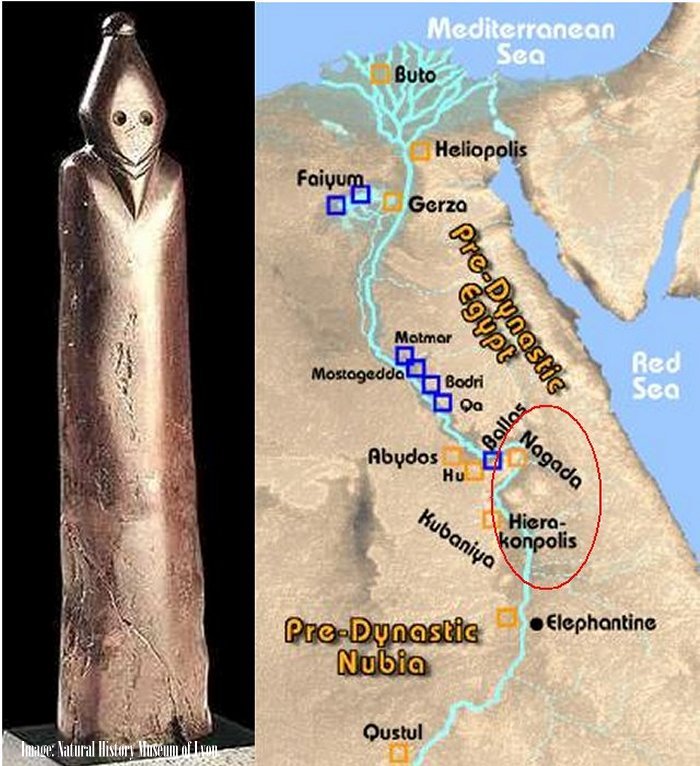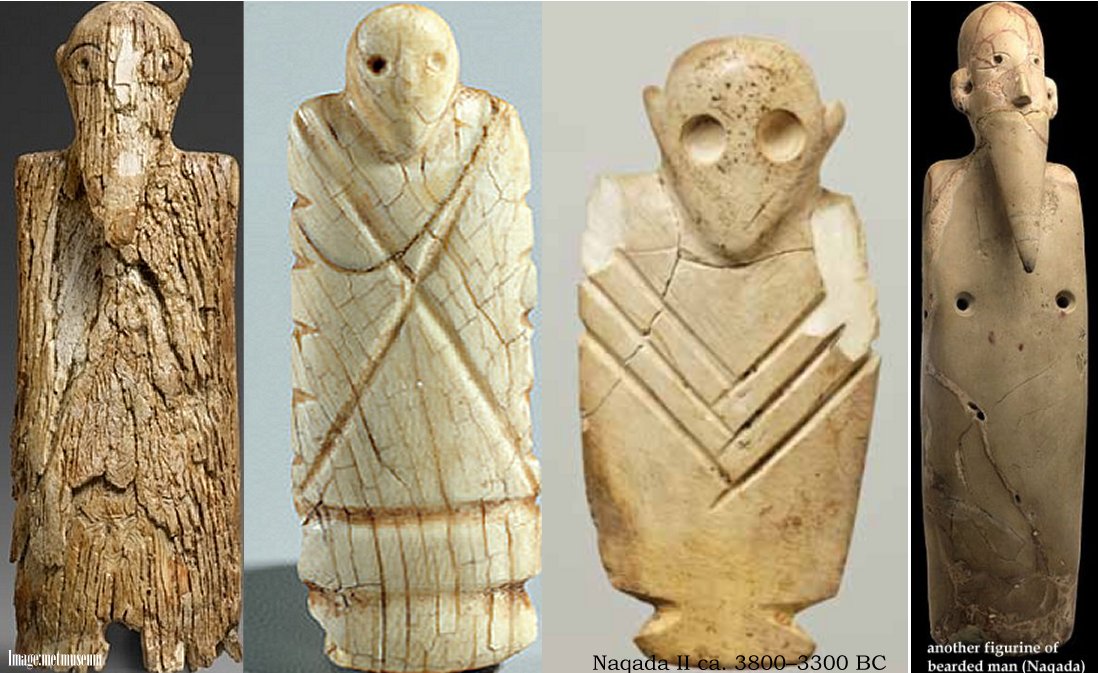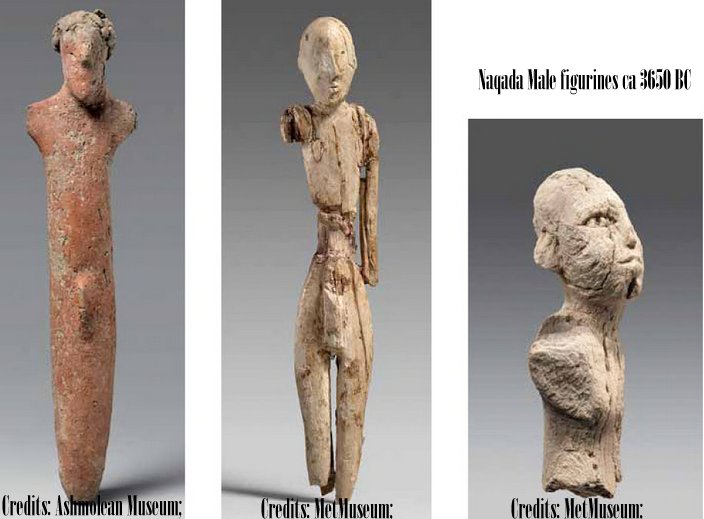Mysterious Figurine Of Mythical Individual Dates Back To Egypt’s Naqada Culture 4400–3000 BC
A. Sutherland - AncientPages.com - This statue dates to the Pre-dynastic era and it could be the first known representation of a pharaoh, but the name of this pharaoh is unknown.
There are no known records of this mythical individual who most probably played a significant role in the kingdom of the pharaohs.
The artifact was discovered in an ancient area of Gebelein located about 40 km south of Thebes and 30 km south-west of Luxor in Egypt. This particular area was considered the “White Land” and interesting is that one of many Anubis’ titles, was “Lord of the White Land”.
The statue has height 31.5cm, width – 7cm, depth – 5cm and dates to the Naqada (Nagada) culture (ca. 4400–3000 BC). The pharaoh’s head (if he was a pharaoh) is topped with a crown that could be that of Upper Egypt.
His pointed beard is similar to many other Naqada figurines depicting men with impressive beards perhaps seen as a symbol of male power, to which are related the royal and divine false beards of Dynastic times in ancient Egypt.
Is it a false beard, real one or is it perhaps a mask?
Today, the area of Gebelein is a complex of archaeological sites; more than five thousand years ago, it was probably the capital of one of the proto-states, which laid the groundwork for the civilization of the Pharaohs.
In fact, two types of artistic figurines: female terracotta figurines and bearded men with stylized shapes carved in different types of stone were common to Naqada I and II, but not all male figurines depicted men with pointed beards.
A huge cemetery at Naqada (in Greek:Ombos), a town on the west bank of the Nile in the Egyptian governorate of Qena, was widely excavated by Egyptologist William Flinders Petrie in the winter of 1895/1896.
At first, Petrie believed that the cemetery from the First Intermediate Period (ca. 2181–2055 BC), but it soon became clear that it was in reality prehistoric site (prior to 3100 BC).
At the site of the Pre-dynastic necropolis of Naqada, Petrie unearthed a large number of pottery items belonging to different historical periods in Naqada Culture.
Written by A. Sutherland - AncientPages.com Staff Writer
Copyright © AncientPages.com All rights reserved. This material may not be published, broadcast, rewritten or redistributed in whole or part without the express written permission of AncientPages.com
Expand for referencesD. C. Patch, Dawn of Egyptian Art
More From Ancient Pages
-
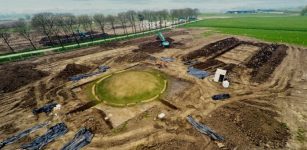 4,000-Year-Old Stonehenge Of The Netherlands Reveals Its Secrets
Archaeology | Jun 22, 2023
4,000-Year-Old Stonehenge Of The Netherlands Reveals Its Secrets
Archaeology | Jun 22, 2023 -
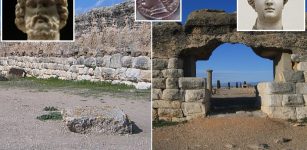 Ancient City Empuries (Emporiae) With Best Greek Ruins Located Outside Of Greece
Featured Stories | Dec 29, 2022
Ancient City Empuries (Emporiae) With Best Greek Ruins Located Outside Of Greece
Featured Stories | Dec 29, 2022 -
 Tribe Recalls Ancient Contact With An Extraterrestrial In The Amazon Jungle And A Strange Beam Of Light
Featured Stories | Jun 25, 2020
Tribe Recalls Ancient Contact With An Extraterrestrial In The Amazon Jungle And A Strange Beam Of Light
Featured Stories | Jun 25, 2020 -
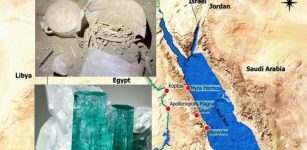 Roman Empire’s Emerald Mines In The Egyptian Eastern Desert – New Evidence
Archaeology | Mar 2, 2022
Roman Empire’s Emerald Mines In The Egyptian Eastern Desert – New Evidence
Archaeology | Mar 2, 2022 -
 New Discovery: Unknown Use Of Yellow Colors In Ancient Egypt – Revealed
Archaeology | Oct 16, 2019
New Discovery: Unknown Use Of Yellow Colors In Ancient Egypt – Revealed
Archaeology | Oct 16, 2019 -
 Ancient Romans Invented The First Bound Book
Ancient History Facts | Sep 25, 2017
Ancient Romans Invented The First Bound Book
Ancient History Facts | Sep 25, 2017 -
 Horses Skinfaxi And Hrimfaxi – Bringers Of Light And Darkness To Earth In Norse Mythology
Featured Stories | Dec 16, 2017
Horses Skinfaxi And Hrimfaxi – Bringers Of Light And Darkness To Earth In Norse Mythology
Featured Stories | Dec 16, 2017 -
 Incredible Sedlec Ossuary – Church Of Bones Reveals More Gruesome Secrets
Archaeology | Dec 4, 2019
Incredible Sedlec Ossuary – Church Of Bones Reveals More Gruesome Secrets
Archaeology | Dec 4, 2019 -
 Ancus Marcius: Semi-Legendary Fourth King Of Rome Obliged To Make War To Defend And Expend Territories
Featured Stories | Jul 12, 2019
Ancus Marcius: Semi-Legendary Fourth King Of Rome Obliged To Make War To Defend And Expend Territories
Featured Stories | Jul 12, 2019 -
 Gigantic Viking Age Burial Ground With Artifacts And 50-Meter-Long Shipwreck Unearthed In Tvååker, Halland, Sweden
Archaeology | Oct 18, 2024
Gigantic Viking Age Burial Ground With Artifacts And 50-Meter-Long Shipwreck Unearthed In Tvååker, Halland, Sweden
Archaeology | Oct 18, 2024 -
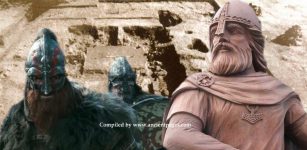 Viking Ivar The Boneless Could Be Buried In Repton – Remarkable Viking Burial Holds Clues To Where Ragnar Lodbrok’s Son Died
Featured Stories | Jun 17, 2022
Viking Ivar The Boneless Could Be Buried In Repton – Remarkable Viking Burial Holds Clues To Where Ragnar Lodbrok’s Son Died
Featured Stories | Jun 17, 2022 -
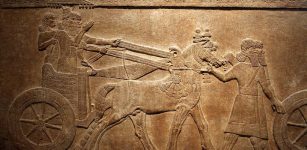 Pax Assyriaca: Important Time For The Neo Assyrian Empire And Surrounding Regions
Ancient History Facts | Aug 11, 2016
Pax Assyriaca: Important Time For The Neo Assyrian Empire And Surrounding Regions
Ancient History Facts | Aug 11, 2016 -
 Fossil Of Extinct Human Species Reveals Climate Change Led To Unexpected Anatomical Changes 2 Million Years Ago
Archaeology | Nov 11, 2020
Fossil Of Extinct Human Species Reveals Climate Change Led To Unexpected Anatomical Changes 2 Million Years Ago
Archaeology | Nov 11, 2020 -
 Rakshasas: Night Wandering Race Of Demons And Warriors Fuelled By Kundalini In Hindu Beliefs
Featured Stories | Oct 8, 2019
Rakshasas: Night Wandering Race Of Demons And Warriors Fuelled By Kundalini In Hindu Beliefs
Featured Stories | Oct 8, 2019 -
 Mysterious Relics Can Retrieve Leonardo da Vinci’s DNA And Provide New Information About The Great Renaissance Man
Archaeology | Apr 22, 2017
Mysterious Relics Can Retrieve Leonardo da Vinci’s DNA And Provide New Information About The Great Renaissance Man
Archaeology | Apr 22, 2017 -
 A New William Shakespeare First Folio discovered on Isle of Bute, Scotland
Archaeology | Apr 10, 2016
A New William Shakespeare First Folio discovered on Isle of Bute, Scotland
Archaeology | Apr 10, 2016 -
 Xibalba: Nine-Leveled Underground Place Of Fear Ruled By Lords Of Death In Maya Beliefs
Featured Stories | May 12, 2020
Xibalba: Nine-Leveled Underground Place Of Fear Ruled By Lords Of Death In Maya Beliefs
Featured Stories | May 12, 2020 -
 Spectacular Square-Headed Creature And 143 New Nazca Geoglyphs – Discovered
Archaeology | Nov 19, 2019
Spectacular Square-Headed Creature And 143 New Nazca Geoglyphs – Discovered
Archaeology | Nov 19, 2019 -
 Mount Ararat Was Once Located By The Sea – Study Of Palm Leaves Reveals
Archaeology | Jul 18, 2020
Mount Ararat Was Once Located By The Sea – Study Of Palm Leaves Reveals
Archaeology | Jul 18, 2020 -
 Rare Well-Preserved Viking Artifacts Lost On Mountain Pass – Revealed By Retreating Glaciers
Archaeology | Apr 16, 2020
Rare Well-Preserved Viking Artifacts Lost On Mountain Pass – Revealed By Retreating Glaciers
Archaeology | Apr 16, 2020

